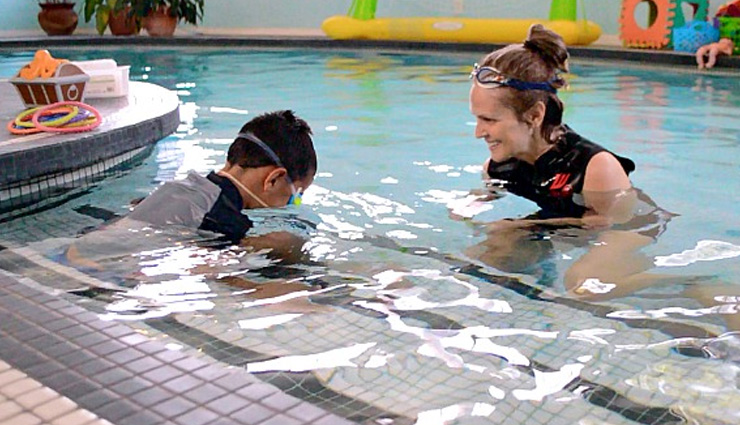- Home›
- Mates & Me›
- 6 Ways To Help Your Child Fight Fear Of Water
6 Ways To Help Your Child Fight Fear Of Water
By: Priyanka Maheshwari Wed, 13 May 2020 11:45:28

Your three-year-old loves bath time and seemed excited about your family’s upcoming trip to the beach. But when you got to the beach, they clammed up, and wouldn’t even dip their toes in the water. Or maybe your baby loved it when you gently held them in the pool, but now that they are a toddler, the mere mention of a pool excursion causes them to break out into a chorus of emphatic “No’s!”
If these sorts of scenarios sound familiar to you, you are not alone. It is very common for young children to develop a fear of water and for parents to feel frustrated and unsure of how to get their kids to overcome these fears.
Here are some strategies to try:

* Gradual Immersion
Letting your child get used to the water gradually can be really helpful. Maybe on the first day they only dip their toes in, the next day they go in up to their knees, then up to their waist, etc. Some children just really need extra time to feel comfortable. Don’t push it.
* Fun Equipment
Colorful goggles, water wings with their favorite character on them, a sturdy life-jacket. Some kids will feel more comfortable going in with little equipment. These items can make them feel safe and more secure. It’s important to emphasize that as fun as some of these items are, they are not toys. And as The Academy of American Pediatrics recommends, parents should never allow floatation aids devices to give them a false sense of security or use them as substitutes for hands-on supervision.
* One-On-One Swim Lessons
Some children will be more likely to listen to an adult other than their parents when it comes to getting in the water. A kind, patient swim instructor may just do the trick plus, they have tons of experience with this issue, and their own tricks-of-the-trade when it comes to getting young children more comfortable in the water.

* Get in With Them
Some kids are only comfortable if you get in the water with them. You can take several days where you either carry them, or hold their hand, and then gently ease yourself away. But even when you back away, never go too far. The Academy of American Pediatrics recommends that parents stay within arm’s length of any inexperienced swimmers at all times.
* Talk It Out
It can be helpful to understand the reason behind your child’s fear. Sometimes that can be difficult to ascertain, especially if it’s a more general fear of water. But many kids will be able to tell you about a scary movie they saw involving water, or a specific fear such as a monster living in the bottom of a lake or pool. If you know what they are grappling with it, it may be easier to help them overcome their fear and feel more at ease in the water.
* Seek Counseling
If your child seems particularly frightened or anxious and you are not able to get to the bottom of it, meeting for a session or two with a child psychologist can work wonders.





